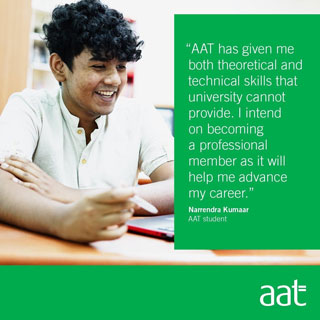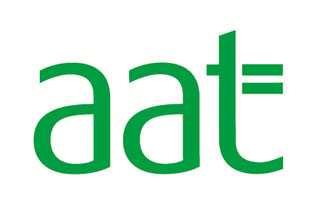The Demand For Accounting Technicians
by StudyMalaysia.com on August 6, 2021 | Top Stories, Career Guide

Many companies are opting for more cost-effective staff recruitment strategies amidst the Covid-19 pandemic. The demand for Accounting Technicians is on the rise. Research commissioned by IFAC (International Federation of Accountants) has indicated an acute shortage of basic accounting skills in developing and emerging markets.
When Accounting Technicians (also known as Accounts Executive, Audit Assistant, Accounts Supervisor, Assistant Manager, etc) are empowered with appropriate technical knowledge and skills, they can take on the day-to-day practical work of accountancy and play a key operational role in producing reliable financial information.
In larger organizations, with Accounting Technicians there, the senior accounting colleagues are free to play more proactive and strategic roles for the benefit of the organizations. In smaller businesses, Accounting Technicians will often be involved in all aspects of financial management - delivering high-quality advice and financial information to support business planning, facilitating access to credit and expanding operations.
The World Bank, in many of their Reports on the Observance of Standards and Codes (ROSC) for Accounting and Auditing for various countries, has underlined the importance of a mid-tier accounting stream i.e. Accounting Technicians for both the corporate and public sectors. This is particularly essential in developing and emerging economies where access to a sufficient volume of well-trained finance personnel can be challenging. Accounting Technicians can be a vital component in the professionalisation of the public sector and implementing public financial management reforms necessary to support economic development. (source: CAPA – Accounting Technicians 2020 Update: Recent Developments)
The importance of this segment was further highlighted when IFAC, in partnership with AAT (The Association of Accounting Technicians) in the United Kingdom, issued ‘An Illustrative Competency Framework for Accounting Technicians’.
AAT being the leading professional body for Accounting Technicians trains and certifies ATs. Its qualifications are recognized internationally and help make a career in finance more accessible and achievable to students. AAT qualifications in Malaysia provide students with industry-relevant accountancy skills across a range of levels.
“The curriculum prepares students progressively – from introductory to professional level where students acquire very good foundation skills in accounting, up to being able to give objective feedback to companies on financial matters,” says Mr Woon Chang Lung, formerly a Credit Controller in a leading PLC. “It also covers critical areas, such as ethics and the importance of a solid accounting system to prevent fraud.”
Ng Pui San, an AAT Professional Diploma in Accounting alumnus in Malaysia, says the courses provide work-based accountancy knowledge and practical skills. “AAT’s flexible learning timetable and exam schedule allow me to study and be well-prepared for my exams without interrupting my job. I’m currently working in an accounting firm. All the knowledge I have learned from the AAT course can be easily applied to my work. It’s also helped improve my efficiency and confidence at work.”
Study Pathways
If you’ve just completed your SPM/ IGCSE/ STPM or equivalent and are hoping to progress in your accountancy career or even considering changing your career, AAT provides an avenue for advancement and change. The AAT qualifications that are being offered are diverse, with courses to suit every entry and experience level. School leavers can start at lower levels, e.g. Level 2 Foundation Certificate and finish off with Level 4 Professional Diploma in Accounting. This will take an average of 1½ years.
AAT accounting qualifications give students the necessary accounting foundational studies to pursue professional accounting degrees such as ACCA, CIMA, ICAEW and the like. Students gain generous exemptions, shortening the duration of studies significantly.
Professional Recognition
AAT members can use the designatory letters (MAAT) after your name to demonstrate your credentials. The status shows that you have been trained to a high degree with global qualifications, garnering respect from clients, suppliers and potential employees alike.
AAT assessments are computer-based and so there won’t be any issue of cancelled exams after a gruelling preparation. Learners can opt to study online or face-to-face, depending on the mode of delivery adopted by the respective AAT Approved Training Providers. You may click here to access our list of Training Providers https://youra.at/4dXYmN
Student testimonial

Narrendra Kumaar is now pursuing CIMA. Prior to taking up CIMA, Narren was studying the AAT Advanced Certificate in Bookkeeping & AAT Professional Diploma in Accounting which is an accelerated pathway to professional accounting degree studies.
Narren’s ambition was to be an Accountant. Immediately after his IGCSE, he was considering a few options including top-notched private universities and colleges. He could have enrolled successfully easily in any of these institutions, with his straight A’s and intellectual disposition. Having completed his IGCSE at a young age, i.e. 16 years old, and being brought up single-handedly by his mother (who is also a father to him) he needed to choose carefully.
Weighing study options vis-à-vis the tuition fees PLUS the desire to study for a recognised accounting qualification are at the top of his mind. He found that further studies in private universities and colleges are not cheap. The ones that he had in mind to attend cost more than RM50, 000 for a Diploma. Narren took a gap year to work, and during this time, found that AAT accounting qualifications provide an accelerated pathway to professional accounting degree studies at affordable fees.
He enrolled with System & Skills Training Concept (SSTC), an approved AAT Training Provider, completing his AAT Advanced Certificate in Bookkeeping and the AAT Professional Diploma in Accounting in less than 15 months. Upon completion, he had the choice to join one of the Big Four accounting firms but decided to work and then continue with his CIMA.
Narren is now pursuing his CIMA via CGMA Finance Leadership Programme. He anticipates to finish his chartered accounting studies in 1½ - 2 years.

This article is contributed by AAT. You may contact their Malaysia Office for further information:
Ms Pak Mei Yoke
[email protected]
Mobile: +6012 – 370 7660
You May Also Be Interested In...
STUDY, WORK AND LIVE - FIRST CITY UNIVERSITY COLLEGE'S UNIQUE OFFERING
![STUDY, WORK AND LIVE - FIRST CITY UNIVERSITY COLLEGE'S UNIQUE OFFERING - StudyMalaysia.com]() First City University College offers a unique opportunity for students...
First City University College offers a unique opportunity for students...Will my job be taken over by a robot in the future?
![Will my job be taken over by a robot in the future? - StudyMalaysia.com]() Are you ready for the fourth industrial revolution? Are you prepared f...
Are you ready for the fourth industrial revolution? Are you prepared f...Guidelines for international students returning to Malaysia
![Guidelines for international students returning to Malaysia - StudyMalaysia.com]() Are you an international student planning to return to Malaysia for yo...
Are you an international student planning to return to Malaysia for yo...Reopening of University Campuses for 2021/2022 Starting From 15/9/2021
![Reopening of University Campuses for 2021/2022 Starting From 15/9/2021 - StudyMalaysia.com]() All universities in Malaysia, both public and private, are planning to...
All universities in Malaysia, both public and private, are planning to...The (Times Higher Education) Young University Rankings 2021
![The (Times Higher Education) Young University Rankings 2021 - StudyMalaysia.com]() The Times Higher Education YOUNG UNIVERSITY Rankings (web link THE You...
The Times Higher Education YOUNG UNIVERSITY Rankings (web link THE You...Watch videos about different careers
![Watch videos about different careers - StudyMalaysia.com]() Watch the videos of different careers to better understand the nature ...
Watch the videos of different careers to better understand the nature ...





























